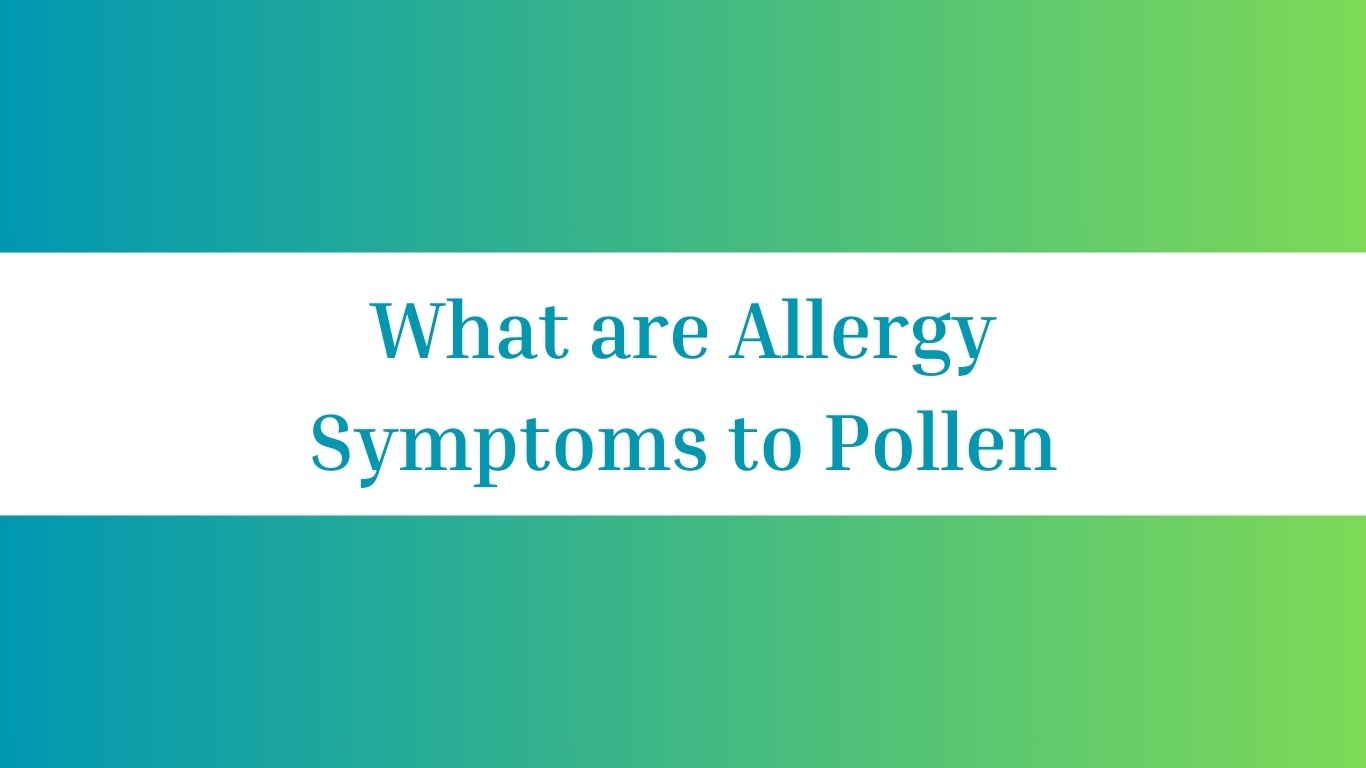Pollen allergies can cause discomfort and affect daily activities, especially during peak pollen seasons.
Allergy symptoms of pollen include sneezing, runny nose, itchy eyes, and congestion. These symptoms can vary in severity depending on the individual and the type of pollen.
Dive in to explore effective strategies for identifying and mitigating pollen allergy symptoms, ensuring a more comfortable and informed approach to seasonal transitions.
Understanding Pollen Allergies
Pollen allergies are a common condition that affects millions of people, causing a range of uncomfortable symptoms. Now, I will delve into the various aspects of pollen allergies, including the symptoms, types, and effective management strategies.
What Are Pollen Allergies?
Pollen allergies, also known as hay fever or allergic rhinitis, occur when the immune system overreacts to pollen particles in the air. When individuals with pollen allergies inhale or come into contact with pollen, their immune system perceives it as a threat, leading to the release of histamines and other chemicals.
This immune response triggers the typical symptoms associated with pollen allergies, such as sneezing, congestion, itchy eyes, and respiratory issues.
Types Of Pollen Allergies
There are various types of pollen that can trigger allergic reactions in susceptible individuals. The most common types of pollen allergies include:
- Tree Pollen: Tree pollen allergies often manifest in the spring, as trees release pollen into the air for reproduction.
- Grass Pollen: Grass pollen allergies typically peak during late spring and early summer, affecting individuals who are sensitive to grass pollens.
- Weed Pollen: Weed pollens, such as ragweed, can cause allergies in late summer and fall, leading to similar symptoms as other pollen allergies.
Allergy Symptoms To Pollen
During certain times of the year, pollen can trigger allergic reactions in susceptible individuals. Understanding the symptoms of pollen allergies is important for proper recognition and management of the condition.
Recognizing Allergy Symptoms
Identifying allergy symptoms to pollen is essential for timely intervention and relief. The manifestation of these symptoms could vary from person to person, and it is crucial to be aware of the common indicators of pollen allergies.
Common Pollen Allergy Symptoms
When exposed to pollen, individuals with allergies may experience a range of symptoms, including:
- Nasal congestion
- Sneezing
- Runny or itchy nose
- Watery or itchy eyes
- Itchy throat or ears
- Coughing
- Wheezing
Identifying Pollen Allergens
Identifying pollen allergens is crucial for individuals who suffer from pollen allergies. Understanding the different types of pollen and their seasonal variations can help in managing and minimizing the impact of pollen allergens.
Types Of Pollen
Pollen is a fine powder produced by the male parts of certain plants, including trees, weeds, and grasses. Common types of pollen that are known to trigger allergies in individuals include:
- Tree Pollen
- Grass Pollen
- Weed Pollen
Seasonal Variation Of Pollen
Pollen allergens exhibit seasonal variations, with different types of pollen being prevalent during distinct times of the year. Understanding the seasonal patterns of pollen can help individuals anticipate and prepare for heightened allergy symptoms. The seasonal distribution of pollen can be categorized as follows:
| Season | Common Pollen Types |
|---|---|
| Spring | Tree Pollen (birch, cedar, oak) |
| Summer | Grass Pollen (rye, Bermuda, Timothy) |
| Fall | Weed Pollen (ragweed, sagebrush, ragwort) |
Managing Pollen Allergies
Managing pollen allergies is essential in order to alleviate symptoms and lead a more comfortable life. By understanding effective prevention methods and treatment options, individuals can significantly reduce the impact of pollen allergies on their daily lives.
Pollen Allergy Prevention
Preventing exposure to pollen is crucial for individuals with pollen allergies. Some effective prevention methods include:
- Avoiding outdoor activities during high pollen count days
- Keeping windows and doors closed during peak pollen seasons
- Using high-efficiency particulate air (HEPA) filters in the home
- Showering and changing clothes after spending time outdoors
Treatment Options For Pollen Allergies
Managing pollen allergies may require the use of various treatment options to alleviate symptoms. Some common treatment options include:
- Over-the-counter antihistamines to reduce sneezing and itching
- Nasal corticosteroid sprays to reduce nasal inflammation
- Decongestants to relieve nasal congestion
- Allergy shots (immunotherapy) to desensitize the immune system to pollen
Conclusion
Recognizing the symptoms of pollen allergies is crucial for managing its impact. By understanding the common signs such as sneezing, itchy eyes, and congestion, individuals can take the necessary steps to minimize discomfort. Seeking medical advice and implementing preventive measures can help in alleviating the effects of pollen allergies and improving overall quality of life.
FAQs Of What Are Allergy Symptoms To Pollen
What Are The Common Allergy Symptoms To Pollen?
Pollen allergy symptoms may include sneezing, itchy or watery eyes, runny or stuffy nose, and itchiness in the throat or ears. Some people may also experience coughing, wheezing, or shortness of breath.
How Can I Differentiate Pollen Allergy Symptoms From A Cold?
Pollen allergy symptoms usually persist longer than a cold, and are more related to watery eyes, while cold symptoms are often accompanied by fever and body aches. Consulting a doctor for proper diagnosis is important.
Are There Different Symptoms For Different Types Of Pollen Allergies?
Yes, different types of pollen can trigger different allergy symptoms. For example, tree pollen may cause symptoms in the spring, while grass pollen may cause symptoms in the summer. It’s important to identify the specific pollen trigger for effective management.
Can Pollen Allergy Symptoms Lead To Severe Complications?
For some individuals, pollen allergy symptoms can lead to complications such as sinus infections, asthma exacerbation, or allergic conjunctivitis. Seeking medical advice is crucial if experiencing severe or worsening symptoms.

Nazmul Gazi is a dedicated final-year student at Cumilla Medical College with a passion for promoting health and wellness. Drawing from his medical studies, Nazmul writes insightful health tips and guides, helping readers make informed decisions about their well-being.

